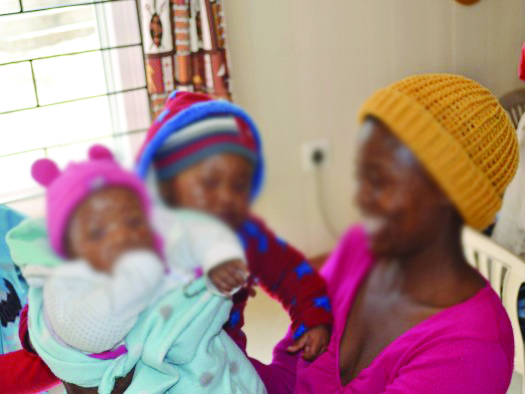Pascalinah Kabi
A GLOBAL health initiative organisation says the low number of infants testing HIV positive is proof of the success of the country’s Prevention of Mother to Child Transmission (PMTCT) project.
UNITAID, a global health initiative organisation, joined hands with Elizabeth Glaser Pediatric AIDS Foundation Lesotho (EGPAF) to introduce new point-of-care devices which have the capacity to perform an early infant diagnosis (EID) test at the facility where HIV exposed infants present for care.
The devices were launched in Lesotho in December 2016, making the country one of the first nine in Africa to have access to the new-to-the-market technology which provides same-day results and potentially facilitate same-day treatment.
Previously, under the old system, infants would only be tested 6 weeks after their birth.
The devices are being piloted at three health facilities – Mafeteng Hospital, Maputsoe SDA Clinic (Leribe) and Likotsi Filter Clinic (Maseru) and it is expected that the devices will be enrolled to 29 facilities across the country.
UNITAID Country Implementation Technical Advisor, Anafi Makata said the project had a capability of increasing access to over 179 facilities through what is called the Hub and Spoke Model.
Hub sites are where the devices are located and perform the testing while spoke sides are facilities in the catchment area of the hub/testing site and collect and send samples for HIV testing on the same day.
“Our experience so far has shown high acceptability of the use of this technology by parents and caregivers. We have not had any incidence of a mother or caregiver refusing to give consent for their child to be tested,” Mr Makata said, adding “caregivers and parents have always been cooperative and they continue to do so”.
“In about 4 weeks just over 180 infants had been tested as of Friday 27 January. Positivity has been very low so far as only two infants tested positive, which shows the successes of our PMTCT program,” he said.
He said the two infants who tested positive were immediately initiated on treatment, saying that it was a well-known fact that when children were initiated on treatment early and are given their medication as prescribed, had a chance to live long and healthy lives.
He said early treatment initiation gave infants a chance to live a normal and healthy life.
Mr Makata said the Ministry of Health had always run good nutrition programs targeting children to ensure that the infants on treatment had access to nutrients required for their development.
Mr Makata said healthcare providers were trained to provide appropriate infant feeding, counselling and education to the caregivers of children living with HIV.
“Adherence counselling is also given by nurses, doctors and counsellors to caregivers of children on antiretroviral treatment,” he said.
In a case where parents of HIV positive children lacked the means to provide nutrients for their children, Mr Makata said the ministry recommended breastfeeding with appropriate introduction of solids at the age of six months.
He further said the ministry had always run programmes that are targeted at provision of nutritional support for all infants and children of families that cannot afford to procure nutritional foods.


